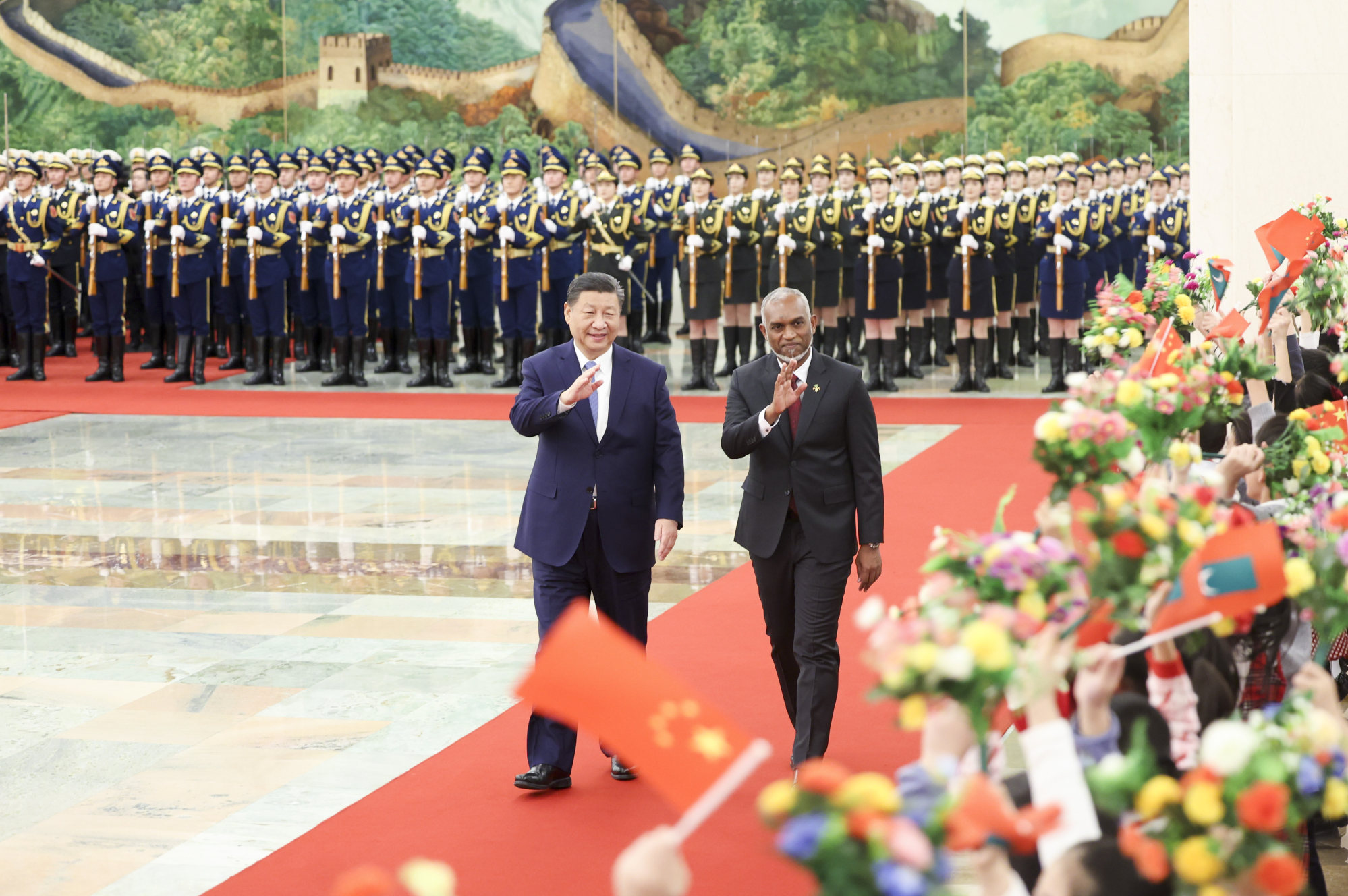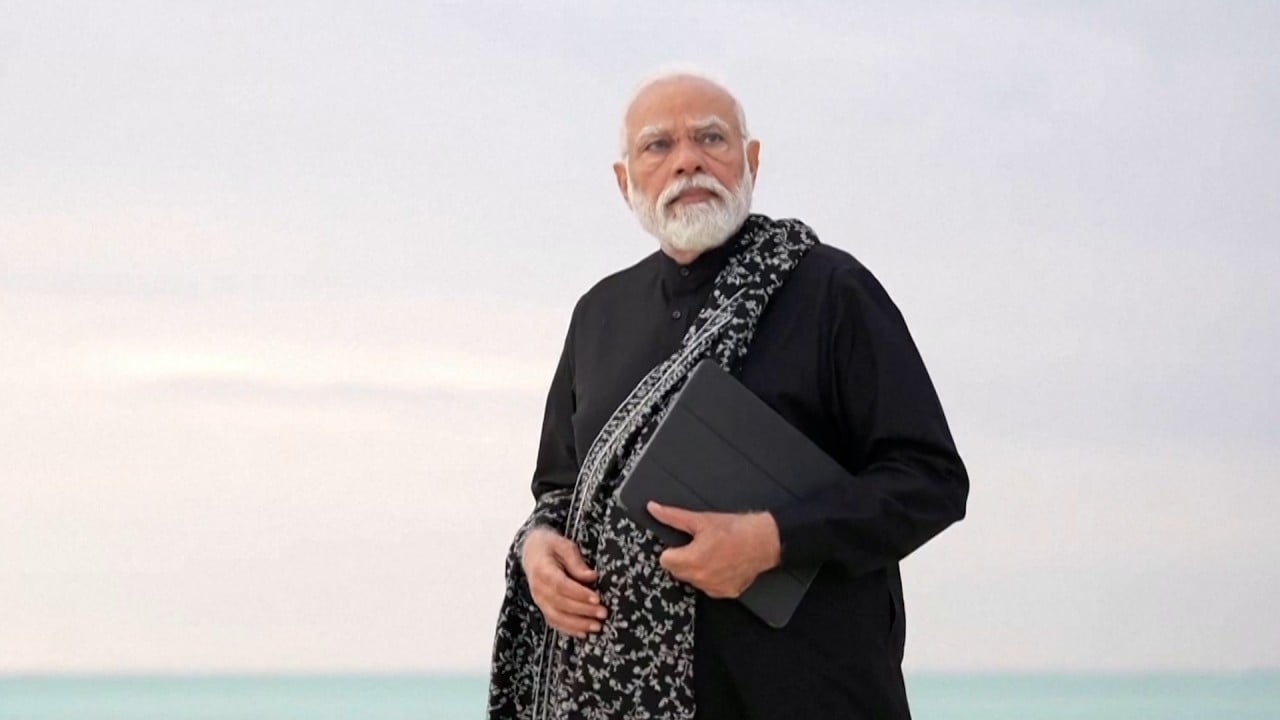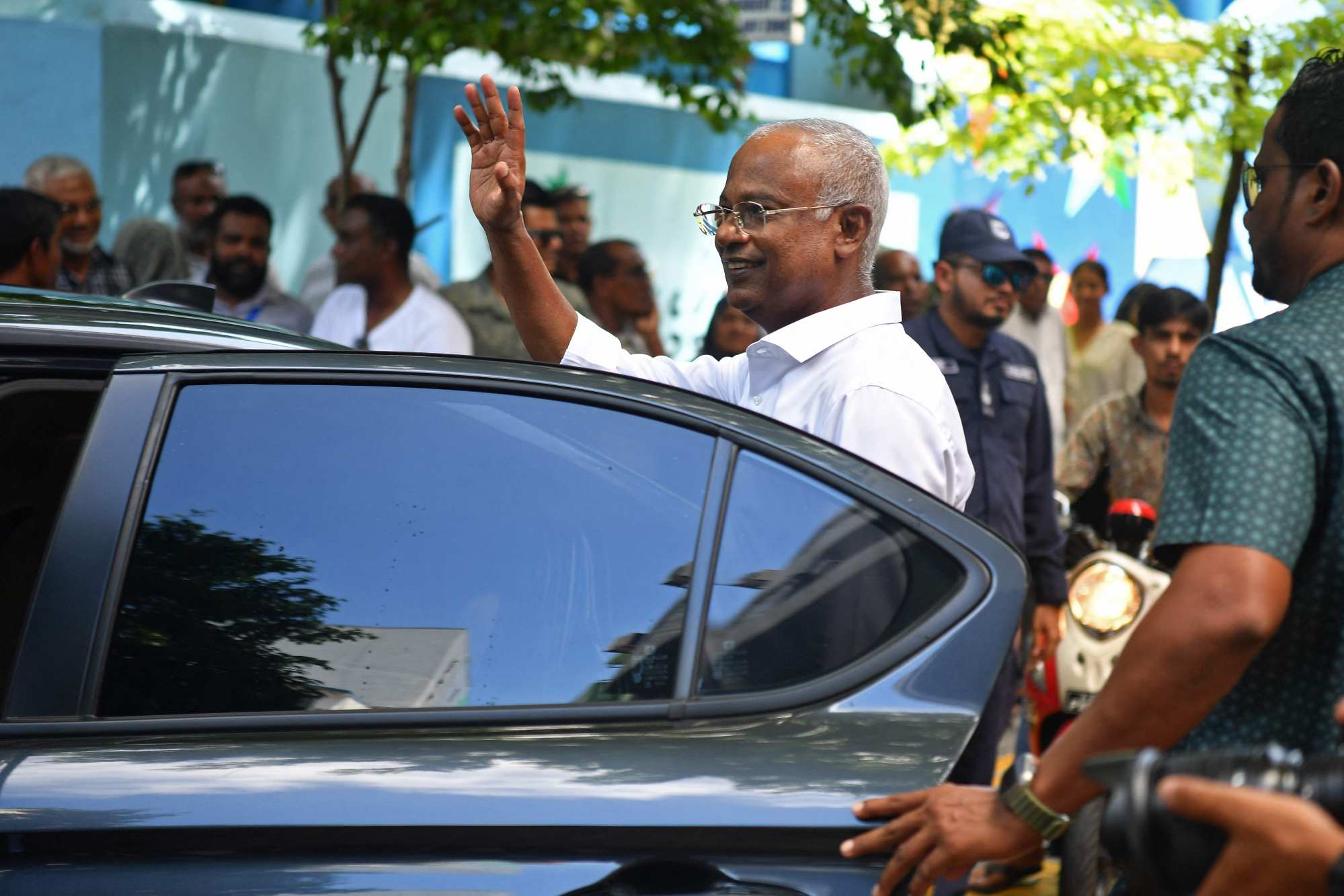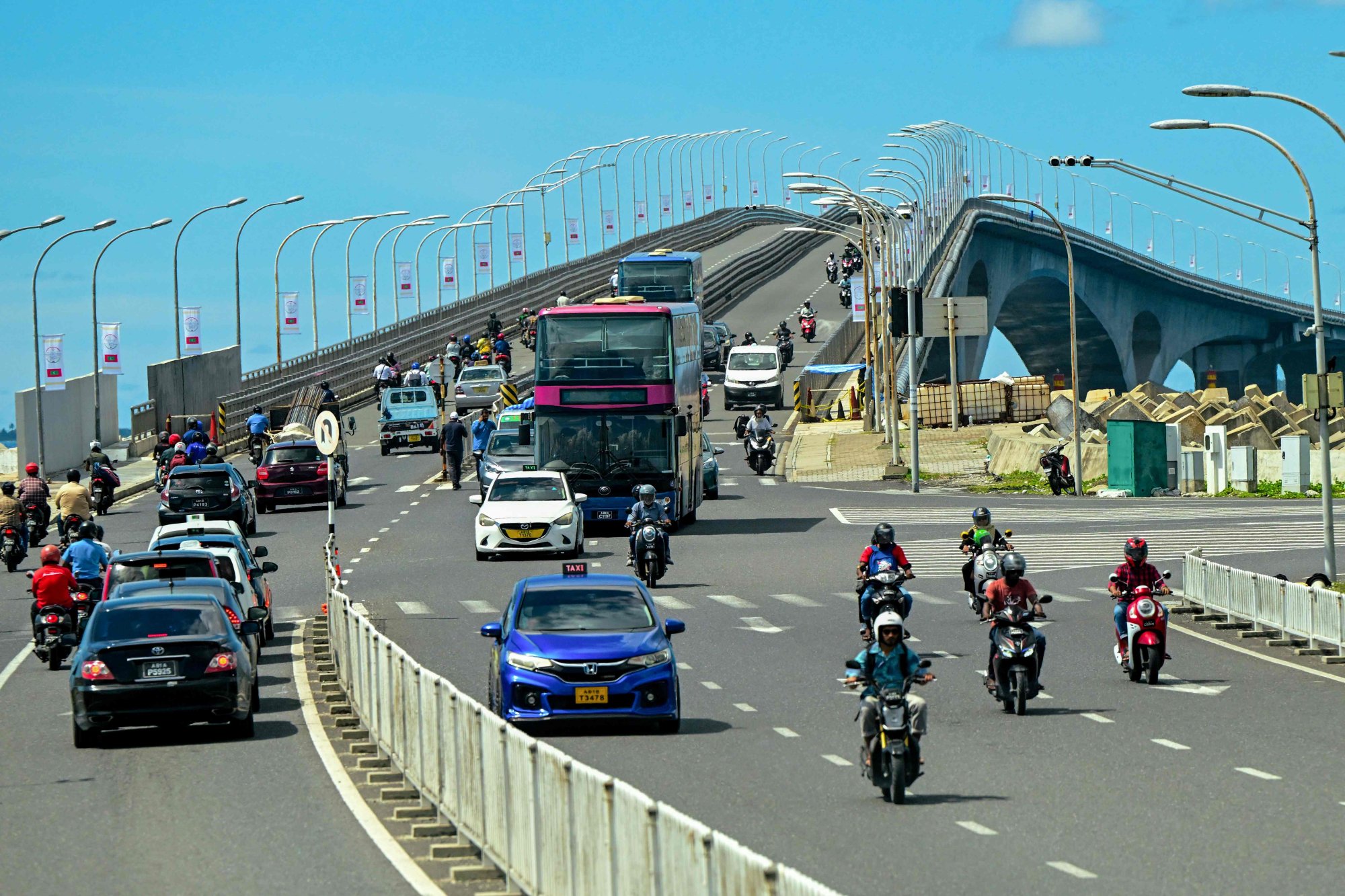India and the Maldives appear to be mending fences, exchanging overtures to bolster their partnership in a diplomatic dance that analysts say is driven partly by New Delhi’s worry over China’s creeping influence in the Indian Ocean.
Ties were strained after President Mohamed Muizzu, who came to power on an anti-India campaign, told Delhi to withdraw its troops from his country. The 89 soldiers had been operating and maintaining two helicopters and one fixed-wing aircraft that India previously gifted the Maldives.
India, like many countries, is trying to manage China’s growing influence and “wouldn’t like to lose the Maldives completely”, said Harsh Pant, an international-relations professor at King’s College London.
“If the Maldives is trying to engage India more substantively then it is in India’s interest to reciprocate and that is what India is doing,” he said.

After a landslide victory for pro-China Muizzu in April’s parliamentary polls, the Maldivian government has been sending positive signals to India to advance economic ties, with Foreign Minister Moosa Zameer visiting India in May to discuss issues of “mutual interest”.
During the trip, India announced it would extend by another year the maturity date of a US$50 million loan to the Maldives, in the form of a treasury bill, to give Male more time to repay the debt.
Given the geopolitical considerations, analysts say the Maldives cannot completely abandon Delhi, despite Muizzu’s shift towards China and commitment to reducing his nation’s dependence on India.
China had already wielded its leverage over the Maldives to secure infrastructure projects and push to expel Indian military personnel, Pant said.
Simmering India-Maldives tensions boiled over in January after Maldivian officials made derogatory remarks about Indian Prime Minister Narendra Modi visiting a group of Indian islands near the Maldives to promote domestic tourism.
The remarks prompted Modi supporters to start a boycott of the Maldives, causing the number of tourists from India who visited the neighbouring island nation to plummet by some 42 per cent, according to official figures.

01:56
India-Maldives row escalates after disparaging remarks about Prime Minister Modi
India-Maldives row escalates after disparaging remarks about Prime Minister Modi
But India’s government “sensibly played down” the issue, according to Pant, who said Delhi avoided “provocation even when Maldives tried to escalate tensions”.
“Both Male and New Delhi have to work together in the Indian Ocean,” he said. “Maldives wouldn’t like to be overdependent on any country, so addressing India’s concerns certainly is a pragmatic way to engage on the subject.”
India is supporting 65 community development projects in the Maldives, valued at 360 million Maldivian rufiyaa (US$23.4 million), according to the Indian embassy in the country.
Data from the embassy also showed that India-Maldives bilateral trade surpassed US$300 million for the first time in 2021 and stood at US$500 million in 2022, the last year for which figures were available.
Aditya Gowdara Shivamurthy, an associate fellow at the Delhi-based Observer Research Foundation think tank’s strategic studies programme, said the Maldives’ “deep economic difficulties” were pushing the nation to engage with India and seek debt restructuring.
“There was a push for development and connectivity between New Delhi and Male during [former president Ibrahim Mohamed] Solih’s time and Muizzu’s government is trying to pick and choose all the previous projects he feels are of interest,” Shivamurthy said.
He said such projects include the Thilamale bridge, formally known as the Greater Male Connectivity Project, and housing and community developments that were initiated by the previous government.

India has also made efforts to establish a free-trade agreement with the Maldives, the island nation’s Economic Development and Trade Minister Mohamed Saeed said on Saturday last week.
Maldives and China signed a free-trade agreement in 2017, but it has yet to take effect.
Delhi is concerned about Chinese goods being re-exported to India through the Maldives under their existing preferential trade agreement, Shivamurthy said.
“Maldivian exports are low because of a lack of diversification in production, so India never pushed for a free-trade agreement until now because it was hardly bringing in any benefits,” he said, adding that renewed trade negotiations with the Maldives by China are likely to progress well under Muizzu.

The Maldives has also been allowing China to make use of its ports, with a Chinese research vessel causing a stir when it was allowed to dock in February – mere months after a similar vessel visited the Indian Ocean, sparking security concerns in Delhi.
Former Indian naval officer Anil Jai Singh said China aspired to be a major Indian Ocean power and was trying to get a foothold in “strategically important” areas.
Singh, who is also vice-president of the Indian Maritime Foundation think tank, said the location of the Maldives provided a major incentive for Delhi to ensure it remained within its sphere of interest.
He said China was also likely to seek returns for any financial or developmental support it provided the Maldives.
“They will either get some [military] base or take over some island and make sure that their ships are allowed to berth over there. That is not good for India because Maldives is less than 300km away,” Singh said.
“That is why India has continued to extend a hand of friendship to the Maldives.”
Dr Vinitha Revi, an independent scholar of international relations associated with the Observer Research Foundation’s Chennai branch, said India-Maldives ties had to be viewed through a wider lens, beyond a narrow focus on China, campaign rhetoric and promises.
She said relations would continue to improve by focusing on two goals: urban development in the Maldives and collaboration on security in the Indian Ocean.

